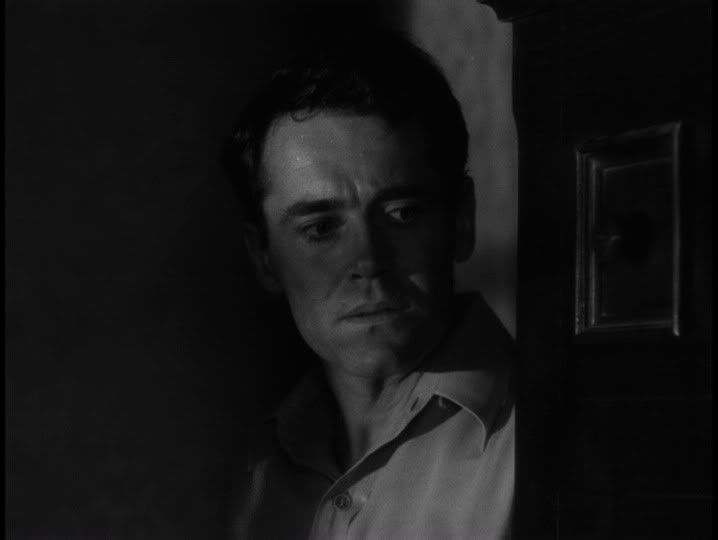Quick Plug: Fonda's mulish withdrawal
by Ryland Walker Knight

Fonda's defensiveness (he seems to be vouchsafing his emotion and talent to the audience in tiny blips) comes from having a supremely convex body and being too modest to exploit it. Fonda's entry into a scene is that of a man walking backward, slanting himself away from the public eye. Once in a scene, the heavy jaw freezes, becomes like a concrete abutment, and he affects a clothes-hanger stance, no motion in either arm.
— Manny Farber ["Rain in the face, dry gulch, and squalling mouth" (1966)]
TCM will be showing Henry Fonda movies all day. It's damned tempting. In the past year or so, he's become one of my favorite actors, though for a very different reason than my attraction to Cary Grant, or Mathieu Amalric; in fact, it's an opposite pull. Fonda's always working against a movie, somehow, and the fun is seeing him winding gears inside his head, plotting his pattern through a picture, and then watching that plan realized. Other times, I like seeing his surprise. Further: it's wonderful to see how much he changed over the course of his career, how age lined his performances with more violence. This is why we miss people like Guillaume Depardieu, or James Dean, too.




God, Farber was amazing. Not the most exciting collection of films tonight, though.
ReplyDeleteI'm more interested in these AM pictures. I haven't seen _Grapes of Wrath_ in forever. This piece piqued my interest a couple months ago.
ReplyDeleteRecently rewatched You Only Live Once. Though Lang stacks things so that we feel for his character, against the grain for treatments of crime in 1937 (and judging by some reviews of the day, against the grain of viewer expectations as well), there's no way he could have pulled it off with a lesser actor. The way violence plays in the film is fascinating too.
ReplyDeleteI will have to see that one, Brian.
ReplyDeleteJust watched _Grapes of Wrath_. Some notes:
-Greg Toland. Straight up.
-Ford frames the body, and goes spare as often as broad.
-Fonda holds everything there, on the lip, except during the dance with his mom to "Remember the Red River Valley," which has to be one of the most moving scenes I've seen in some time.
-The big, penultimate monologue was pretty good, too, but I think people forget how good John Carradine is earlier in the picture -- and how expressive the lighting is in that tent.
-Talk about violence.
-Steinbeck, miserablist. Totally. Makes me question, once again, why we value tragedy. I'm def a Sturges man. His picture feels a little more honest, somehow, than Steinbeck's story (if not exactly the film, but that's iffy, too).
-John Qualen is great, too, as ever. When will somebody do a retro based around him? If I was into blog-a-thons, I'd try to rally one around him, or, at least, around character actors of his ilk from that generation--and why it seems like we don't have them anymore.